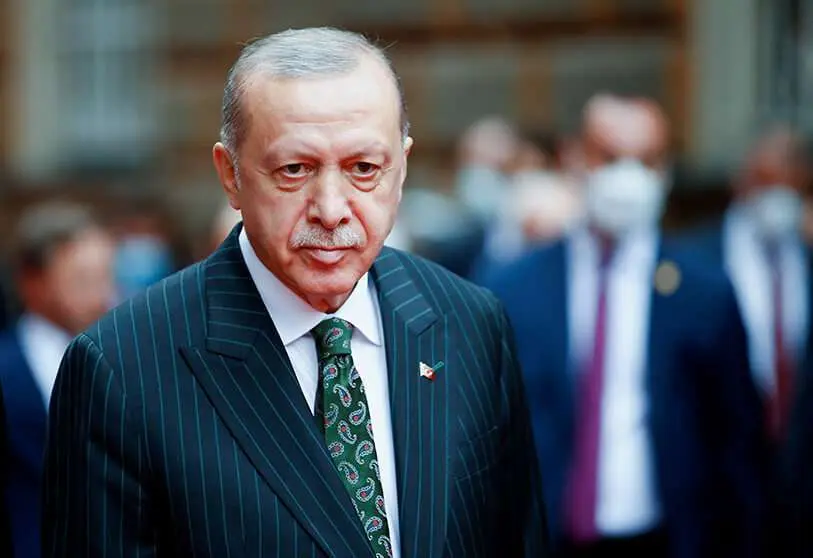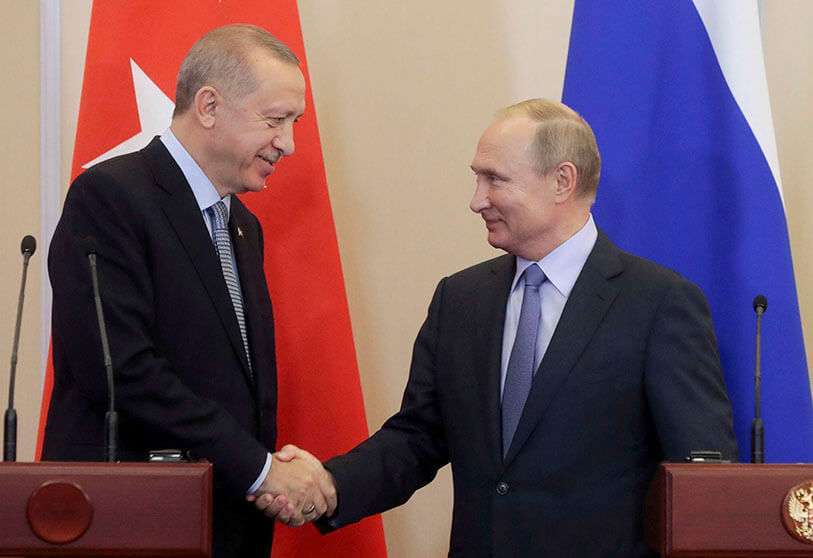Turkey considers rapprochement with al-Assad in new foreign policy shift

At this point in time, there is little news that comes as a surprise when talking about Recep Tayyip Erdogan's foreign policy. After years of disputes and conflict with the vast majority of his neighbouring countries, he now seems to want to make a U-turn and sit down to negotiate with those who a short time ago were his rivals. More than ten years have passed since the outbreak of the Syrian conflict, which even today keeps Turkish forces in the Idlib region - located in the north of the country - aligned with opponents of Bashar al-Assad's regime, such as the Free Syrian Army (FSA).
However, recent developments may cause the Turkish president to take a new turn in his policies. Following the meeting with Russian leader Vladimir Putin, where the Syrian crisis was on the table, and the first contact in ten years between Jordan and Syria, Turkey's approach to its position on Syrian soil could take a major turn. It is no news that some opposition parties, such as the Republican People's Party (CHP), have long been calling for the re-establishment of ties with Damascus without success. However, Ankara's rapprochement with countries such as Saudi Arabia, the United Arab Emirates and even Egypt shows that nothing is impossible when it comes to Erdogan.

The opening of the Jordanian-Syrian border is another sign of the progress being made by the Al-Assad regime, which held a phone call yesterday with King Abdullah II. According to the Syrian state news agency, the conversation "discussed bilateral relations and strengthening joint cooperation for the benefit of the two brotherly countries and peoples". This is not the first rapprochement between Syria and Jordan, which hosted Syrian Oil Minister Bassam Tuma in early September, the first official visit by a Syrian government representative since the outbreak of the conflict.
In addition to Jordan, the UAE, Oman and Egypt have reportedly already made their first overtures to Syria. On the other hand, without being in such a close position, Saudi Arabia has also reportedly held informal talks with representatives of the Damascus government. All these moves put Ankara in a compromising situation, as it sees how many of the countries with which it intends to strengthen ties and with which it has been working for some time to sign cooperation agreements are moving closer to a country with which it maintains an active confrontation on foreign territory.

Recep Tayyip Erdogan is at a crucial crossroads. Less than a fortnight ago, the Turkish leader ordered more troops to Idlib on the eve of his meeting with Putin and Iranian President Ebrahim Raisi. Now, developments around Syria suggest that this decision was not entirely correct, especially when certain sectors of the Turkish government are calling for Erdogan to move closer to al-Assad and for Turkey's forces to withdraw. In fact, the continuous episodes of violence between the Turkish population and the Syrian refugees hosted by Ankara may be another reason that favours rapprochement, since a sector of society sees rapprochement with Al-Assad as the solution to the arrival of refugees.

Nezih Onur Kuru, a political scientist and pollster at Istanbul's Koc University, told Al-Monitor that "the majority believe that sitting down with Assad is the key to solving the problem, and more AKP (Justice and Development Party, currently in power) supporters feel the same way". Of course, there is the complete opposite view, as held by Omer Onhon, Turkey's last ambassador to Syria, who sees the possibility of sitting down with the Syrian leader as nonsense: "This is a man who used chemical weapons against his own people".
The reality is that Erdogan's government is well aware that the refugee crisis is one of the key issues on several fronts. Not only in terms of foreign relations, but also with its own population, which will take into account what the government does between now and the next elections, scheduled for 2023. Turkey's foreign minister, Mevlut Cavusoglu, announced that a month ago they held the first talks with UNHCR (United Nations High Commissioner for Refugees) on the repatriation of Syrians.

"It is wrong to see (repatriation) in a racist and fascist way. On the other hand, if it (becomes) a social problem, it is necessary to find a solution by producing new policies," Cavusoglu said of these initial contacts. But, as Onur Kuru said, there is a feeling that the most effective alternative to redirect this situation is to sit down with Bashar al-Assad to directly negotiate the return of Syrian refugees to their country. Despite this, it is not entirely clear that this rapprochement would mark a turning point in the Syrian conflict after 10 years of active involvement in the region.
The current situation in the country and Recep Tayyip Erdogan's intentions in terms of international cooperation could lead his government to make a U-turn in Syria. There are many possibilities that could be lost if it does not align itself with the growing number of countries that are moving closer to the Al-Assad regime. The current situation forces Turkey to decide that, regardless of which way it turns, will be key to Ankara's future.









